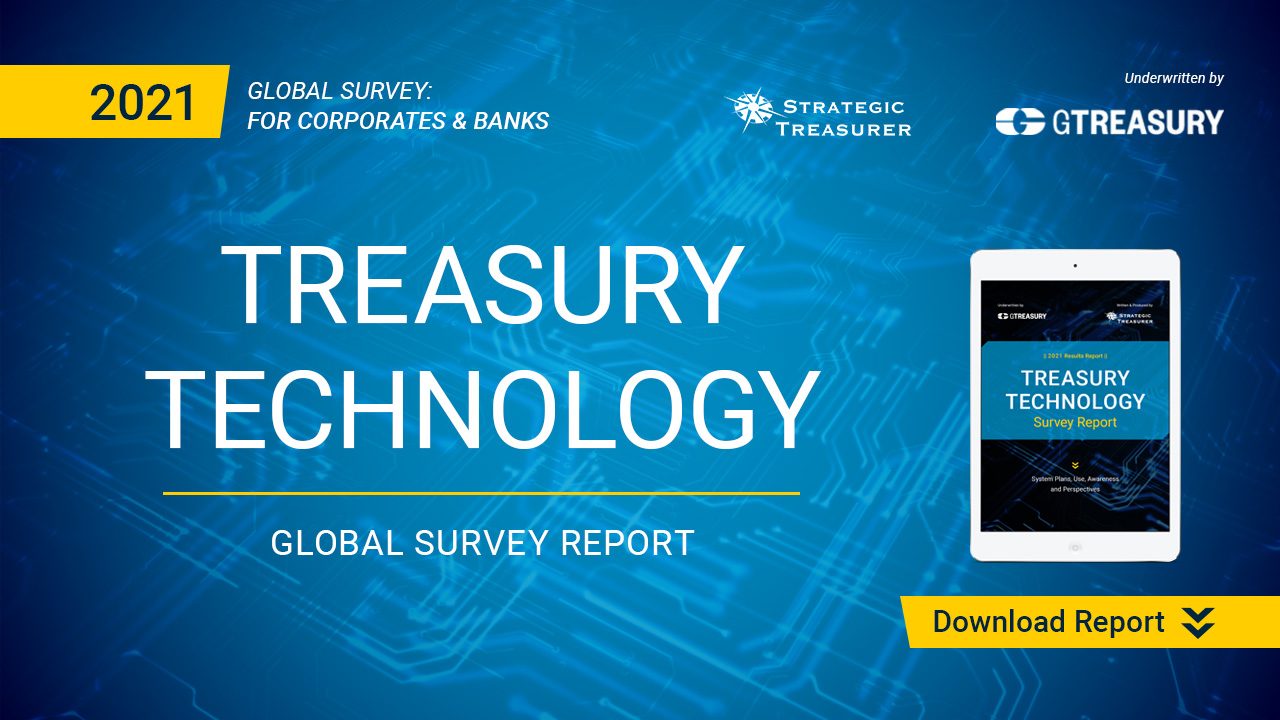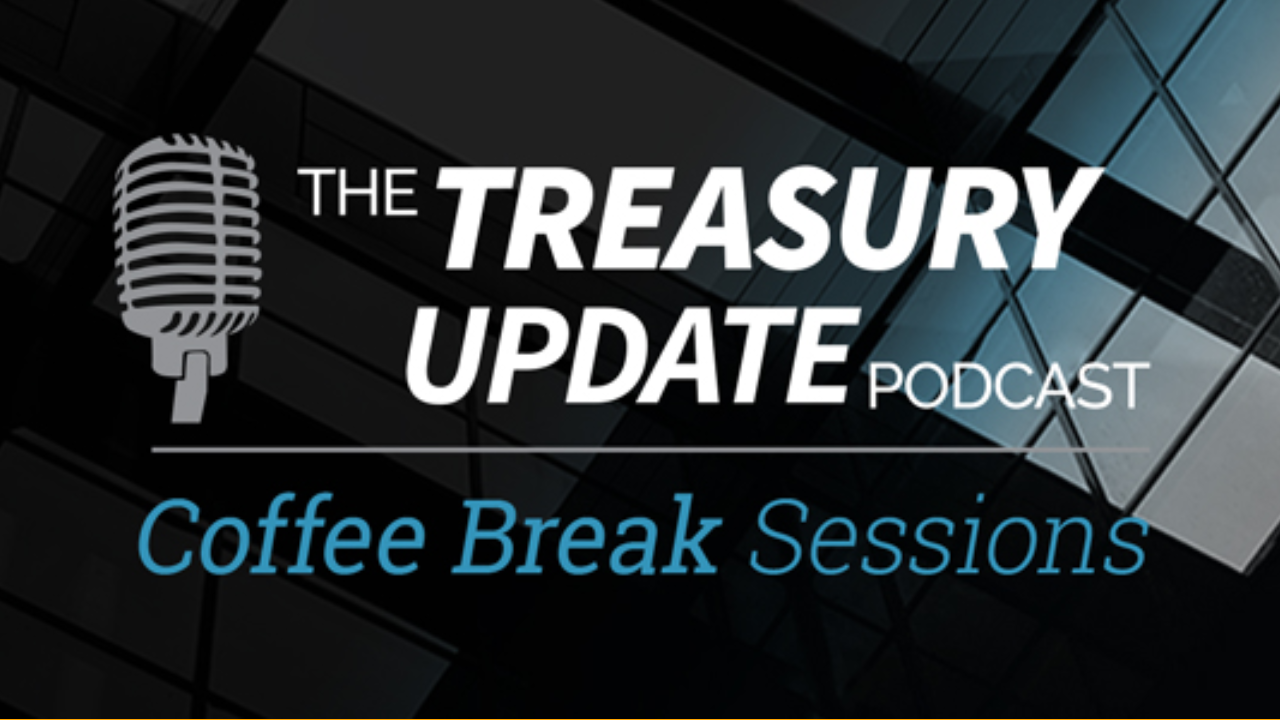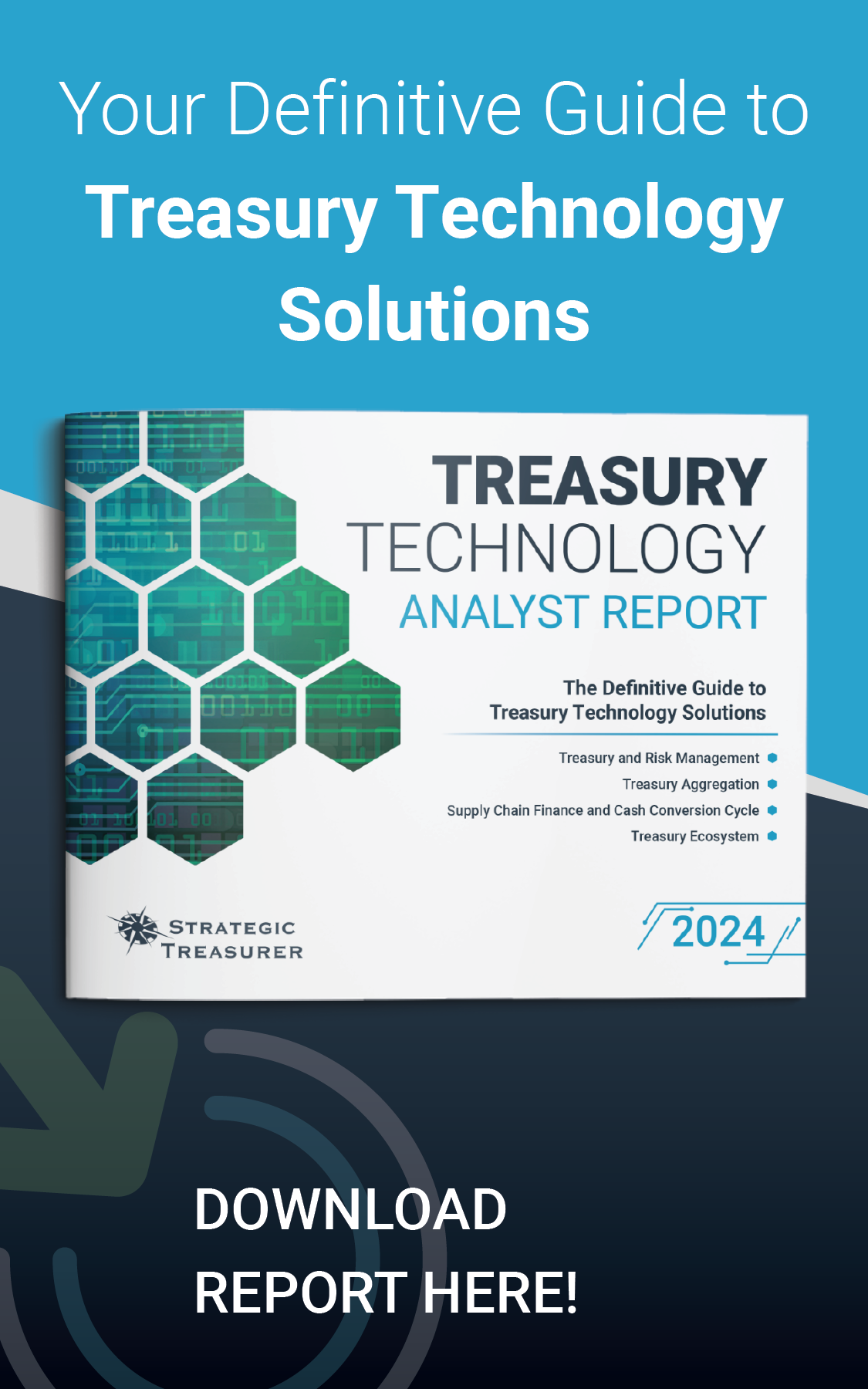
Session 55
Coffee Break Session:
What Is Blockchain?
Host:
Alexa Cook, Strategic Treasurer
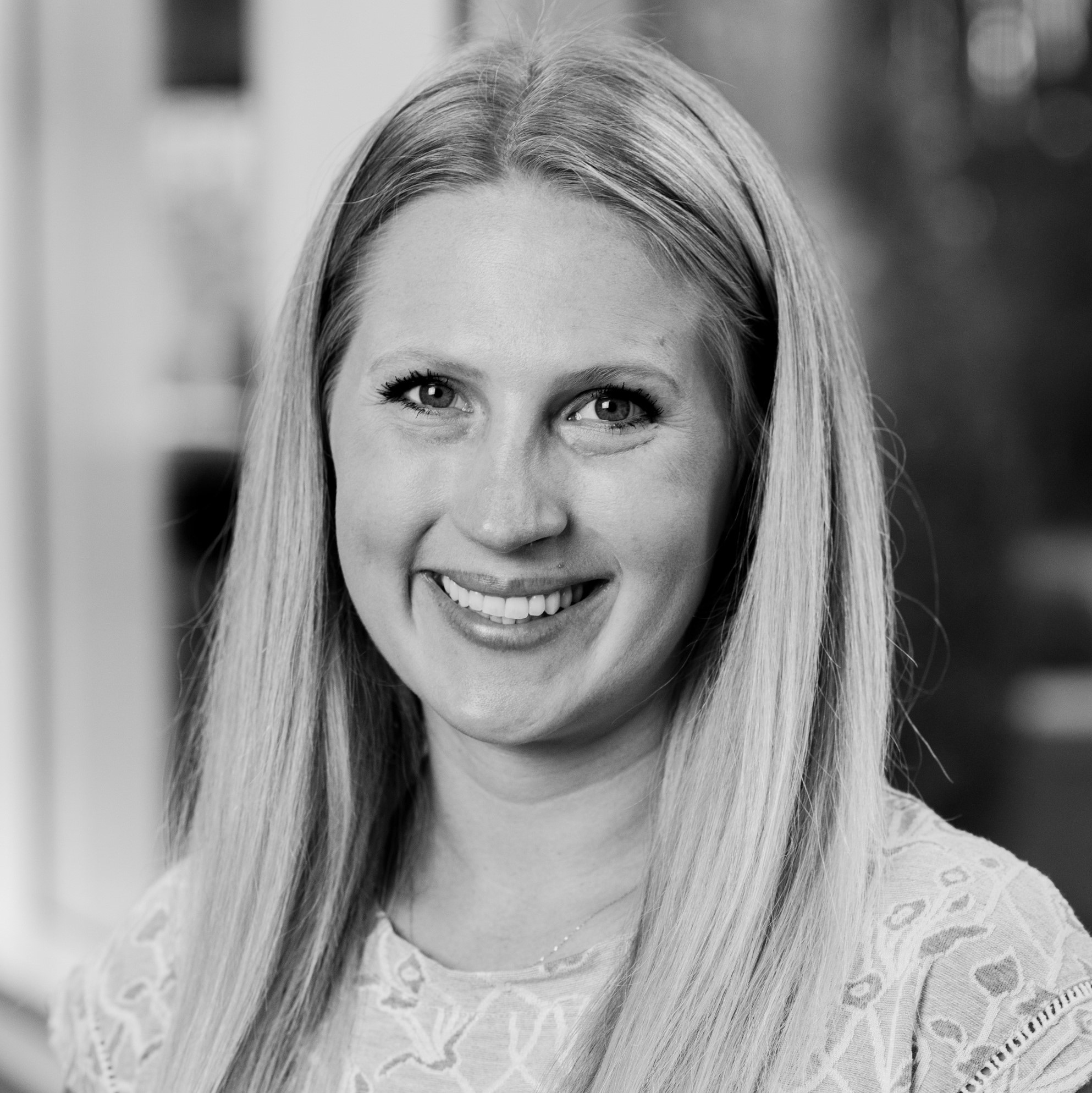
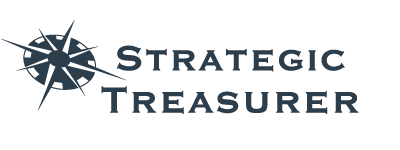
Speaker:
Craig Jeffery, Strategic Treasurer


Episode Transcription - (Coffee Break Session Series) - Episode 55 - What is Blockchain
Alexa Cook 0:04
Welcome to The Treasury Update Podcast Coffee Break Session. The show where we cover foundational treasury topics and questions in about the same amount of time it takes to drink your coffee. It’s your host Alexa and today I’m joined with Craig Jeffrey, Managing Partner of Strategic Treasurer. Welcome back, Craig.
Craig Jeffery 0:22
It’s good to be back, Alexa.
Alexa Cook 0:24
Yeah, so today we’re going to continue our, I guess, digital series our two-part series. And this time we’re going to cover: What is Blockchain? So, Craig, what is blockchain?
Craig Jeffery 0:37
A blockchain it’s a way of keeping track of records in a let’s just call it a ledger that adds information to the ledger. It uses cryptographic codes to record items and they refer to them as blocks. And they’re linked together and tracked using cryptographic methods. So, it’s a method of supporting distributed ledger technology as opposed to a central ledger.
Alexa Cook 1:11
Okay. So then, what are some uses of blockchain?
Craig Jeffery 1:15
Sure. So, when we think about how do people use blockchain and what do people hope to do with blockchain? Some of it is exchange of financial value, and you may think of some different examples where people are exchanging value for, you’re buying goods or services, and using blockchain for cryptocurrency, for example. You can also use it for business document management, could be documentary collections or trade information that people have to look at an act and it’s like a document has to move around. And people have to prove things. And this is a way of managing documents. That’s another use of blockchain. A lot of banks are spending a fair amount of research dollars building capabilities in this area, learning, but also making some practical applications as this extends into the world of reality from the world of ideas about blockchain.
Alexa Cook 2:17
You kind of just give an example there by saying, you know, the documents and the banks investing, you know, R&D money into building that but what are what’s an example of blockchain or a different example of blockchain?
Craig Jeffery 2:28
Like for the exchange of financial value, maybe use Bitcoin to pay for something so, you know, $100 or send a fraction of a Bitcoin or Bitcoin to them through pass a value on to them. So, you exchange value. An example, blockchain might be a smart contract, which is a little different than the other document, but it’s you write the terms of what’s necessary, how is value going to be exchanged, and that smart contract has components when they’re fulfilled. There’s a transfer value piece to it to the transfer value piece, but let’s say it has a transfer value piece to it. So, that when all the elements are completed, the transfer value occurs with even terms of the contract are fulfilled, the transfer value happens, and it’s baked into the contract as opposed to separate and distinct.
Alexa Cook 3:22
Sounds kind of nice, I guess. If you’re, you know, doing a lot of transactions that you know, would have a trigger point for a payment or something like that. How does or how can treasury use blockchain?
Craig Jeffery 3:32
You know, I think one of the things that’s been helpful since COVID happen the use of RightSignature of DocuSign some of these digital signing tools, I think it’s conditioning us to think in this way where agreements have to be executed and there might be three or four parties or different steps that have to take place and it moves along are some type of digital signing codes and keys that pass these legal documents around. I think that’s helping us to understand that concept in a much more rapid manner than may have otherwise been the case. But to your question, how can treasury use blockchain, banks I mentioned a number of them are investing some very heavily, some consistently looking at options here and a number on a number of ways. BBVA did an almost $100 million loan and executed it using blockchain. So, a real loan occurred using that technology. So certainly, at least a proof of proof of concept hit bank in New York Mellon. I like the story where they made their own digital currency, I think they call them some type of coins. They use them for employee rewards. So, these blocks blockchain for passing on value, smaller amounts of a great way to prove a concept, get your employees involved and for the bank to learn. So, those are those are some of the methods that the treasurer can use them, but we look at we look at them for a lot of trade, particularly called cross border trade, trade that requires different trust factors instead of having to rely on two or three banks in the mix. It might make it easier to do it without as much paper involvement and maybe not as many intermediaries.
Alexa Cook 5:23
So that wraps up all of the questions that I pulled together for today. So, what is blockchain? It’s really a way of keeping track of records and a ledger that that might add information to the ledger using those cryptographic codes or blocks. So, all those blocks would then be linked by those crypto graphics, some of the uses of combined goods and services like we might see with cryptocurrencies, or I really like the business document distribution. So, I think you mentioned that DocuSign or RightSignature are starting to condition us to think that way. You know, we’re agreements might need to be signed by 2, 3, 4, even five parties. And so, it’s helping us to really understand that concept in the treasury world. And we’ve seen banks start to heavily invest in that and they’re starting to do loans using the blockchain. So, this is something that’s really coming in and it’s already being applied. So that’s a good way to wrap that up and was there anything you wanted to add there?
Craig Jeffery 6:20
No, I appreciate the time to talk about blockchain. Look forward to more, more conversations on this area of topic.
Alexa Cook 6:29
Yeah. Thanks again, for joining me today, Craig, and thanks to all of our listeners for tuning in and make sure you join us back every first and third Thursday of the month for a new Coffee Break Session. And as always, you can send us comments, questions, or topic suggestions. At podcast@strategictreasurer.com. Thanks again. Craig.
Strategic Treasurer and GTreasury are proud to present the findings from the Treasury Technology Survey with data from over 250 respondents operating primarily across North America and Europe. This annual study polls treasury and finance professionals on their views regarding the technology drivers and challenges and system plans, use, and needs.

